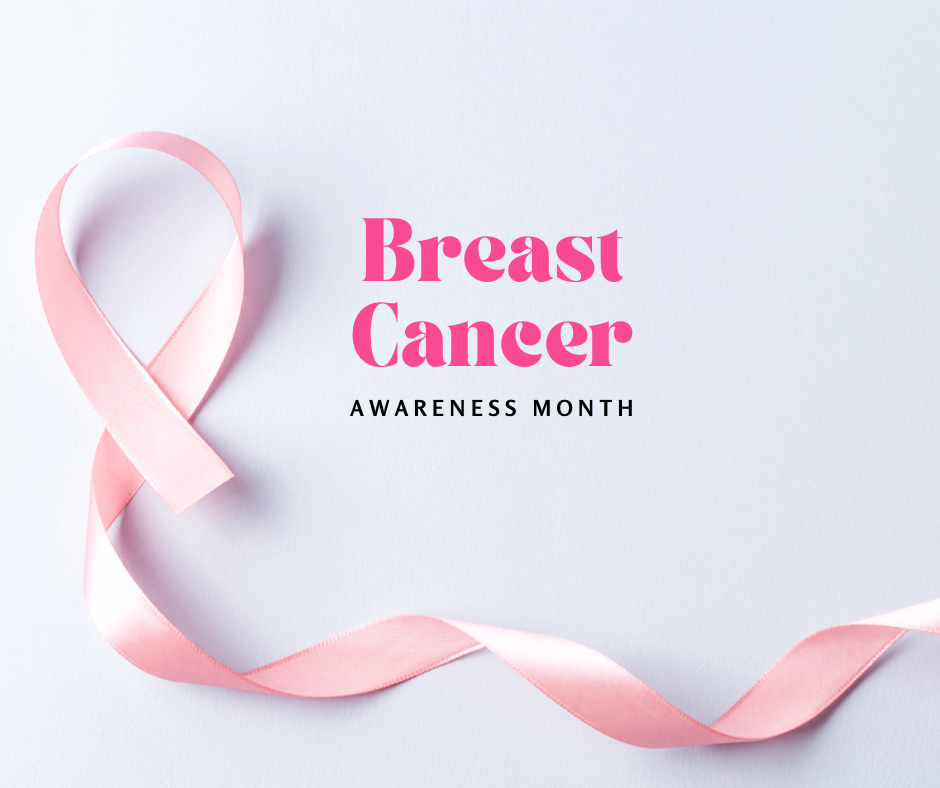Breast Cancer Awareness Month Observed at Holzer


Breast Cancer Awareness Month Observed at Holzer
This October, Holzer is proud to participate in National Breast Cancer Awareness Month. Each of Holzer’s locations that provide mammograms will be giving a free t-shirt to each mammogram patient in October. In addition, Holzer Center for Cancer Care will be providing a Health Screening Event on Monday, October 31 from 3-6 p.m. Breast Exams and Education, Bone Density Testing, and Blood Pressure Checks will be available during the event. In addition, individuals who are in need of a mammogram will be able to schedule an on-the-spot 3d mammogram on the Gallipolis campus. For more information on the event, call (740) 446-3572.
Breast cancer is the second most common kind of cancer in women. About 1 in 8 women born today in the United States will be diagnosed breast cancer at some point. The good news is that many women can survive breast cancer if it’s found and treated early. If you are a woman age 40, talk with your doctor about starting your annual screening mammograms. It’s important to discuss your risk for breast cancer, especially if a close family member of yours had breast or ovarian cancer. Your doctor can help you decide when and how often to get mammograms. Holzer is now offering 3d mammograms at our Gallipolis location, with the plans to offer them at our Jackson and Athens locations by the end of 2022. A 3D mammography exam allows for a better evaluation of tissue layers, making fine details more visible to increase accuracy of your Mammogram. 3D Mammography exams find 20-65% more invasive breast cancers and reduce callbacks by 40% compared to 2D alone.
Information provided by the National Breast Cancer Foundation, Inc., includes the following frequently asked questions:
• Can physical activity reduce the risk of breast cancer?
Exercise boosts the immune system and helps you to keep your weight in check. With as little as three hours of exercise per week, or about 30 minutes a day, a woman can begin to lower her risk of breast cancer. This doesn’t require going to a gym either. Power walking is more than sufficient!
• Can a healthy diet help to prevent breast cancer?
A nutritious, low-fat diet (30 grams or less) with plenty of fruits and green and orange vegetables can help reduce the risk of developing breast cancer. A high-fat diet increases the risk because fat triggers estrogen production that can fuel tumor growth.
• Does smoking cause breast cancer?
Smoking is a confirmed risk factor for many types of cancer. Recent has confirmed that smoking is a contributing risk factor for developing breast cancer. Additionally, second hand smoke is also a risk factor for cancer. So if you are a smoker, help yourself in a significant way and join a smoking cessation program to help you stop. The day you stop smoking the healing can begin and each week in which you are smoke-free, you give yourself increasing advantages for a healthier life. Smoking also directly contributes to heart and other lung diseases, too.
• Can drinking alcohol increase the risk of breast cancer?
Moderation is key. One drink per day has been shown to slightly increase the risk of breast cancer. Having more than one drink per day has shown to be a more significant risk factor, and the alcohol content doesn’t matter: wine, beer or a mixed drink. Alcohol also increases estrogen in your bloodstream.
Although we know that more than one drink per day increases risks, to date there are no studies that demonstrate directly that the more a person drinks, the greater their risk for cancer. And in some cases, drinking one glass of wine a day can offer heart-health benefit. If you drink alcohol, this is an important topic to discuss with your doctor so that you will know what limits are best for you to observe.
• Is there a link between oral contraceptives and breast cancer?
There is an increased risk of breast cancer for women who have been using birth control pills for more than five years. However due to the low amount of hormones in birth control pills today, the risk is relatively small. But if a young woman has a significant family history of breast cancer, her gynecologist may recommend taking a break for a year from the pill at the 5-year time frame then resuming again for another 5 years. Although evidence-based research data does not offer strong support for this standard of care, it has nevertheless become an increasingly common practice.
• Is there a link between hormone replacement therapy (HRT) and breast cancer?
Yes, there is. HRT was added to the carcinogenic list by the American Cancer Society in the early 2000s. It is recommended that women with known risks not be placed on HRT to control of menopausal symptoms. They should instead seek other safer alternatives.
• How often should I do a breast self-exam (BSE)?
Give yourself a breast self-exam once a month. Look for any changes in breast tissue, such as changes in size, feeling a palpable lump, dimpling or puckering, inversion of the nipple, redness or scaly skin, or discharge should be reported to your physician.
If you discover a persistent lump in your breast or any changes, it is very important that you see a physician immediately. Though 8 out of 10 lumps are benign, all require evaluation to confirm that they are not cancerous.
Women should perform their breast self-exam 7-10 days after their menstrual period starts which is also when their breasts are the least tender and lumpy. If they are no longer menstruating, then she should select the same day of the month (first of the month for example) and mark it on the calendar to remind herself when to perform this self-exam. What to look for is a change from last month’s exam to this month’s exam. It is not unusual to have lumpy or bumpy breasts.
All women should know the geography of their own breasts. If having trouble remembering, draw a diagram of where the lumps, bumps, grooves, and other findings are felt so that this can be used as a reminder from month to month.
For more information or for additional information on cancer awareness or services, visit www.holzer.org or call 1-855-4-HOLZER.






